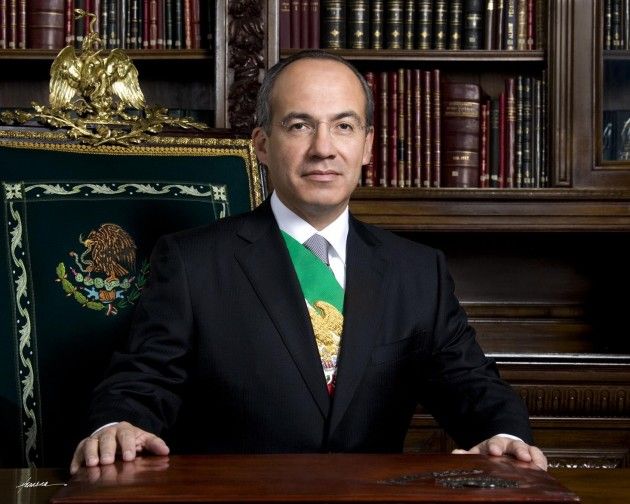On Colgate and Calder??n
There are many negative things you can say about Colgate’s administration. Or any institution, for that matter, that needs a competitive edge for, say, higher rankings on Barron’s Top Liberal Arts Colleges. But last week, Colgate did something right: it was announced that the next speaker for the Global Leaders Lecture Series will be Felipe Calder??n, the former president of Mexico.
Mexico is arguably on its way to becoming a failed state. Drug cartels control essentially every part of the country, and more than 40,000 people were killed in drug-related violence by the end of 2011. It’s gotten to such an extreme that even a beach vacation to Canc??n poses a risk for even the most well-heeled travelers. Drug trafficking – and its associated violence – has always existed in Mexico, by virtue of its location between drug-producing countries like Colombia and buyers in places like the U.S. However, the power of cartels deepened in the past decades – Mexican cartels filled the void of declining Colombian cartels in the 1990s, gaining control over the vast majority of the drugs that pass into the U.S.
In 2006, Calder??n announced a federal plan to increase the efforts against cartel-related drug violence. In December of 2006, he sent more than 6,000 troops to the state of Michoac??n, in an effort to combat drug-related violence. This began the so-called Mexican Drug War between the government’s army and drug cartels. Today, there are more than 40,000 troops with the sole responsibility of combatting cartels and their related violence and terrorism. Calder??n also raised the salaries of the police and army to incentivize service, while restricting the salaries of high-ranking civil servants to control corruption, among numerous other actions and initiatives.
The Mexican Drug War is not nearly over, nor has it been particularly effective in controlling violence or the power of cartels. However, the fact that Calder??n made the effort is important and admirable – a move likely not in his best political interest, but clearly Calder??n was more concerned with protecting Mexicans from cartel terror than with a personal agenda. It’s an honor for us to be able to listen to the former president of a country with which we share a common border. This is especially true when said president served selflessly and competently, despite the fact that networks of illicit, corrupt and immoral drug cartels inevitably had more power than him.
However, Colgate impresses me for bringing Calder??n not because of his accomplishments, but because of the backlash that will inevitably occur. I expect parents and students to be angry with Colgate hosting the former president of drug-infested, failing Mexico. I expect individuals with certain political inclinations and of certain socio-economic classes to have a problem. And I expect those ignorant toward him and his actions to be contemptuous simply of the idea of a third-world (!) leader speaking at an elite, American college.
Of course, Colgate had to consider this, yet they are still supported him visiting campus. I think it says a great deal about the administration that they were ultimately supportive of bringing a controversial figure from a controversial country to speak for our Global Leader Series. Say what you want about Calder??n, but he is a global leader. No, he wasn’t able to stop the drug war in Mexico, but I would argue that cartels have become so powerful and prevalent that controlling them is outside the control of the government of Mexico – or of the U.S., for that matter. He did what he thought was best and would be effective, and that’s better than doing nothing. I commend Colgate for bringing Calder??n, and I anticipate that there will be many people who enjoy and benefit from Calder??n’s lecture.





